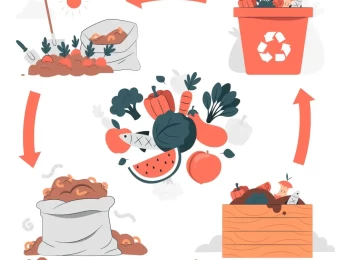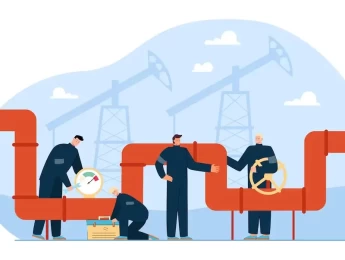Proper lubrication is fundamental to machinery reliability, efficiency, and longevity — yet it remains one of the most misunderstood and underutilized maintenance strategies. This Machine Lubricant Analyst course is designed to prepare professionals for advanced roles in lubrication management and equip them with the knowledge required to succeed in the ICML (International Council for Machinery Lubrication) certification exams, aligned with ISO 18436-4 standards.
Participants will gain in-depth expertise in lubricant selection, condition monitoring, contamination control, and failure analysis — all vital for improving performance, reducing costs, and supporting organizational goals for reliability and sustainability.
Through interactive exercises, hands-on testing simulations, and exam preparation sessions, attendees will learn how to build and manage world-class lubrication programs while elevating their professional credentials in this high-impact discipline.
By the end of this course, participants will be able to:
- Demonstrate mastery of the ICML body of knowledge for machinery lubrication.
- Evaluate lubricant properties and select the right products for specific applications.
- Apply advanced lubricant analysis and condition monitoring techniques.
- Implement contamination control strategies to extend equipment life.
- Integrate lubrication practices into reliability-centered maintenance (RCM) programs.
- Prepare confidently for ICML certification exams with practice and review.
This course is designed for professionals who wish to specialize in lubrication and enhance their maintenance and reliability careers, including:
- Maintenance engineers and technicians.
- Reliability engineers and managers.
- Lubrication analysts and specialists.
- Plant operations and maintenance personnel.
- Asset management professionals responsible for equipment performance.
The course combines instructor-led lectures, group discussions, interactive workshops, real-world case studies, practical demonstrations, lubricant testing simulations, and ICML exam practice sessions. Active participation and problem-solving exercises ensure effective knowledge transfer and retention.
Day 5 of each course is reserved for a Q&A session, which may occur off-site. For 10-day courses, this also applies to day 10
Section 1: Lubrication Principles & Lubricant Properties
- Introduction to ICML standards and certification pathways.
- Fundamentals of friction, wear, lubrication regimes, and tribology.
- Types and functions of lubricants: oils, greases, synthetics, and specialty fluids.
- Physical properties: viscosity, density, pour point, flash point.
- Chemical properties: oxidation stability, additives, and degradation mechanisms.
- Classification standards: ISO, SAE, AGMA, and their application in selection.
Section 2: Lubricant Selection & Application Best Practices
- Criteria for lubricant selection: load, speed, temperature, environment.
- Manual, automated, and circulating lubrication systems.
- Grease vs. oil applications: advantages, limitations, and intervals.
- Storage, handling, and compatibility to prevent contamination and degradation.
- Safe disposal and environmental compliance in lubrication management.
- Calculating lubrication frequency, volume, and replenishment strategies.
Section 3: Lubricant Analysis & Condition Monitoring Techniques
- Principles and objectives of lubricant analysis programs.
- Sampling techniques, best practices, and interpretation of results.
- Common tests: viscosity, particle count, TAN, TBN, water content.
- Advanced testing: wear debris analysis, ferrography, elemental spectroscopy
- Condition monitoring tools: vibration analysis, IR thermography, ultrasonic inspec.tion.
- Developing and implementing a comprehensive lubricant analysis program.
Section 4: Contamination Control & Lubrication Program Optimization
- Identifying sources of contamination: solid particles, water, air, chemicals.
- Effects of contamination on equipment and lubricant life.
- Filtration technologies: types, selection criteria, and maintenance.
- Techniques for removing water and preventing ingress.
- Breathers, seals, and pressurization systems for contamination prevention.
- Continuous improvement strategies for world-class lubrication programs.
Section 5: Reliability Strategies & ICML Exam Preparation
- The link between lubrication and asset reliability & profitability.
- Root Cause Failure Analysis (RCFA) for lubrication-related failures.
- Incorporating lubrication into Reliability Centered Maintenance (RCM) strategies.
- Building a business case for lubrication improvements.
- ICML exam preparation: review of key concepts and terminology.
- Practice questions, time management tips, and final Q&A.
Upon successful completion of this training course, delegates will be awarded a Holistique Training Certificate of Completion. For those who attend and complete the online training course, a Holistique Training e-Certificate will be provided.
Holistique Training Certificates are accredited by the British Accreditation Council (BAC) and The CPD Certification Service (CPD), and are certified under ISO 9001, ISO 21001, and ISO 29993 standards.
CPD credits for this course are granted by our Certificates and will be reflected on the Holistique Training Certificate of Completion. In accordance with the standards of The CPD Certification Service, one CPD credit is awarded per hour of course attendance. A maximum of 50 CPD credits can be claimed for any single course we currently offer.
Categories
Engineering,- Course Code IND04 - 136
- Course Format Classroom, Online,
- Duration 5 days








